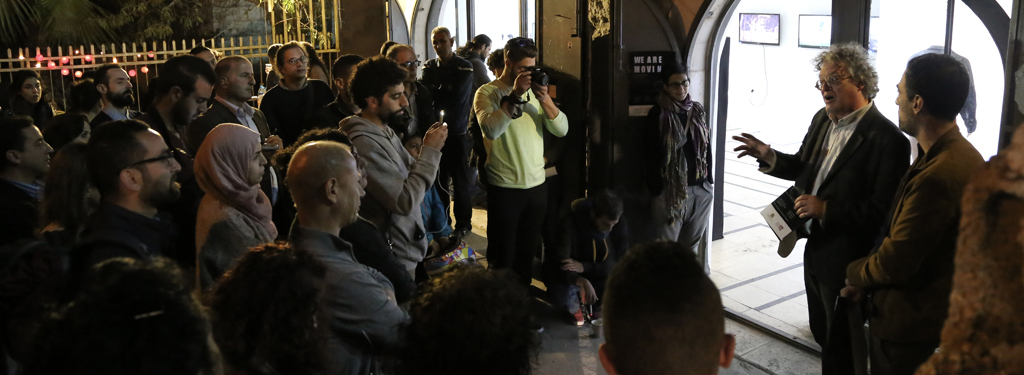Lectures and Dialogues
A series of formal and informal discussions, lectures, talks and critical sessions are periodic events implemented by the PP. These address the works and projects of guest visitors and local partners at the AMQF. This series is pivotal to review various intellectual and critical directions around the world. It explores the methods and means innovators use in their places to create and shape ideas and meanings. The PP hosted several public lectures in the context of the Public Lectures programme. These included:
- Welcome to Iraq, a lecture delivered on 16 November 2016 by Jonathan Watkins of IKON Gallery, talking about his participation as a curator of the Iraqi pavilion at the Venice Biennale 2013.
- The other stories: remapping modernism, a lecture delivered by 22 November 2016 by Morad Montazami of TATE Modern, talking about alternative narratives of modernity between the 1930s and the 1970s in Damascus, Casablanca, Baghdad and Cairo. Montazami addressed non-Western modernity from a global perspective.
- Vienna Actionism - Any Secret Language Is Prohibited, a lecture delivered on 20 December 2016 by Hubert Klocker of Sammlung Friedrichshof. Vienna Actionism is one of the most important art movements of the post-World War II period. Klocker shed light on the works of four artists, who played a major role in creating this movement: Gunther Brus, Otto Muehl, Hermann Nitsch, Rudolf Schwarzkogler. Klocker tried to draw a link between the art movement and cultural and political developments in post-war Austria between the 1950s and the 1970s. Klocker shared important information about the influence of these artists on artists of the new generation in Austria until the present day.
- On poetry and context, a conversion held on 15 February 2017 between Jian Spina and Majed Abdul Hamed. The conversation addressed the context of producing art products using Jian Spina’s artworks as fodder for debate. The conversation featured a balance between the artist’s presentation of his works and the existence of another opinion that analyses problems facing artistic implications and the context of their evolution.

